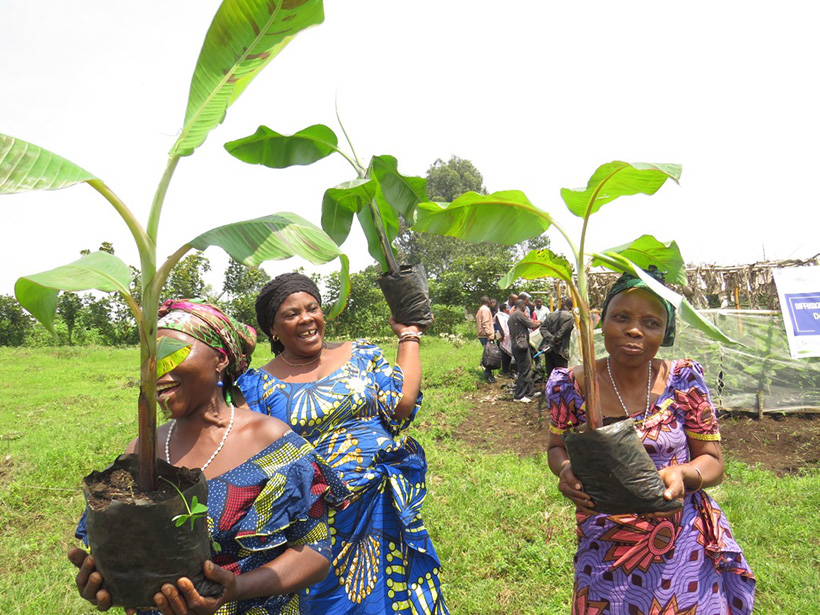 At the heart of the Feed the Future/USAID Great Lakes Accelerated Innovation Delivery Initiative Rapid Delivery Hub (AID-I GLR), efforts continue to amplify the impact of agricultural innovations and technologies. However, it is not just about scaling but about inclusive scaling, with a specific focus on gender equality and social inclusion (GESI).
At the heart of the Feed the Future/USAID Great Lakes Accelerated Innovation Delivery Initiative Rapid Delivery Hub (AID-I GLR), efforts continue to amplify the impact of agricultural innovations and technologies. However, it is not just about scaling but about inclusive scaling, with a specific focus on gender equality and social inclusion (GESI).
In the vast landscape of agricultural development, the term ‘scaling’ is now commonplace. As this article explains, scaling extends innovations and technologies beyond the original design team by bringing them to users. This marks a crucial crossing point for real impact at the community or regional level.
The USAID Global Food Security Strategy sets the stage for the AID-I GLR initiative, aiming to tackle global challenges such as poverty, hunger, malnutrition, climate change, and inequality through the Feed the Future Global Hunger and Food-Security Initiative. With a strong emphasis on equality and inclusion, the strategy seeks to empower women, girls, youth, and marginalized communities through agricultural-led economic growth. The key to achieving these goals lies in the inclusive scaling of agricultural innovations to reach, benefit, and empower diverse communities.
Recognizing the pivotal role played by women in agriculture and the untapped potential of youth, the AID-I GLR initiative is anchored in a commitment to leave no one behind. In the absence of intentional action, scaling could inadvertently sideline socially vulnerable groups, thereby perpetuating rather than eliminating or alleviating existing social inequities scaling should counter.
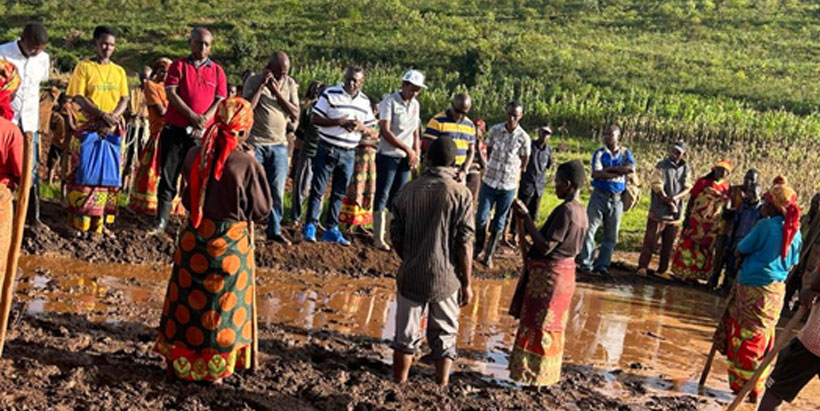
The Project’s Chief of Party at an AID-I GLR activities site in Ngozi District, Burundi, where a marginalized group, the Batwa, has been included in project interventions, such as good agronomic practices for rice pictured here.
AID-I GLR is intentional and emphatic on inclusive scaling. During GESI training using GenderUp methodology, it was stressed that the scaling team must always be conscious that various innovations and scaling strategies could result in unintended negative consequences for different social groups, culminating in adverse outcomes. These include:
- heightened crop theft and robbery
- potential conflicts for persons with disabilities
- displacement of marginalized groups
- increased drudgery for women
- a heightened risk of gender-based violence due to increased income for women.
Importantly, this underscores the need to promote men’s engagement in project activities.
For these reasons, AID-I GLR emphasizes the importance of proactive measures to ensure inclusivity and to pre-empt unintended negative consequences in scaling agricultural innovations.
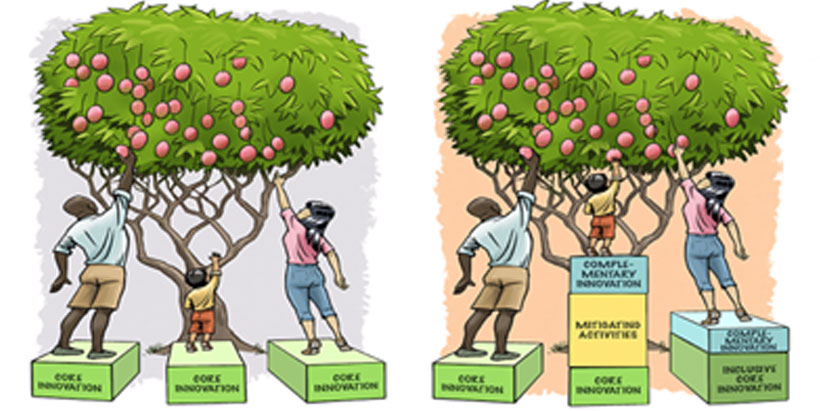
GenderUp methodology for inclusive scaling of agricultural innovations (Source: GenderUp [ucdavis.edu])
- equitably increasing the availability and accessibility of proven agricultural and nutritional practices
- enhancing the adoption of these practices among farming households
The initiative integrates GESI considerations, guided by the GenderUp methodology and reach-benefit-empower perspectives to achieve these goals.
The approach is two-pronged:
- ‘Scaling out’ to reach and benefit diverse groups of women, men, and youth, including female-headed households. These beneficiaries gain access to information, inputs, and technologies—a preparatory step that lays the foundation for inclusive scaling.
- ‘Scaling deep’. This is the next step once a gender and social inclusion balance is achieved. It mainly involves empowering women, youth, and other marginalized groups to achieve a mindset change through activities that promote behavioral change and communication. ‘Scaling deep’ also entails all-inclusive sensitization of communities and the public on the importance of involving women and youth to create a supportive environment, with men’s support as allies: all must be involved for the change to be sustainable.
To ensure the success of these strategies, AID-I GLR invests in GESI capacity strengthening for scaling partners. In 2023, a training workshop was conducted for scaling partners working in Burundi, DR Congo, and Rwanda (more on DRC and Rwanda training).
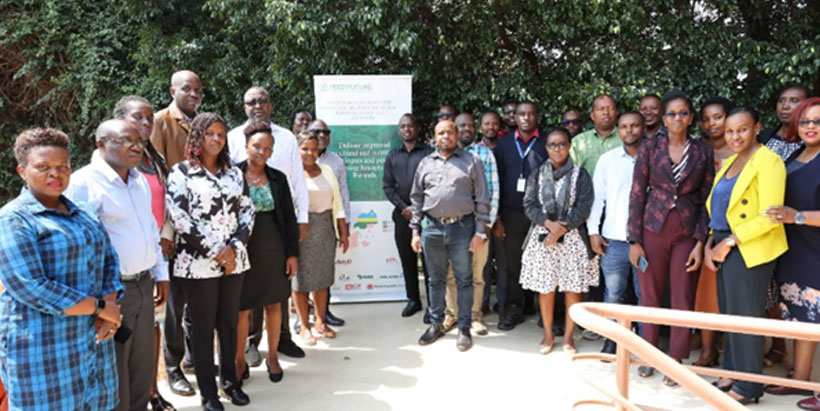
Getting it right from the beginning: AID-I GLR Rwanda field officers at a training workshop on gender equity and social inclusion in project implementation.
The AID-I GLR initiative is not just about innovation scaling; it is about cultivating a future where agricultural advancements benefit everyone, leaving no one behind. The initiative sows the seeds for a more equitable and resilient agricultural landscape through intentional inclusivity.
As the project advances into its second year (2024), the insights gleaned will shape and inform ongoing work, ensuring that every innovation is primed and fine-tuned to maximize its contribution to a better and more inclusive future.
Contributed by Millicent Lodenyi and Ritha Bumwe

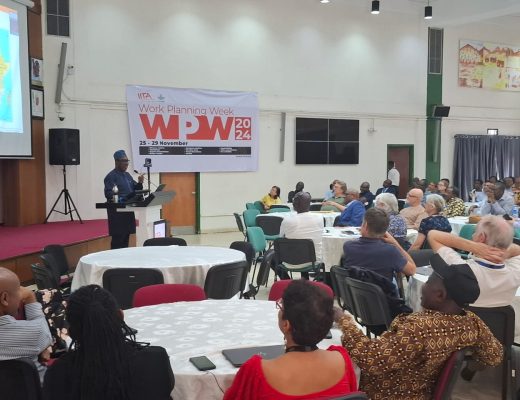
No Comments